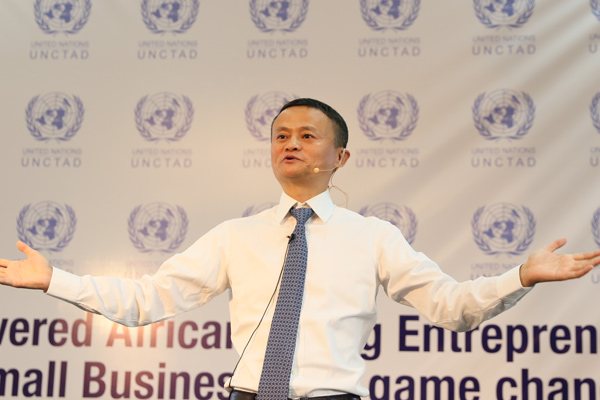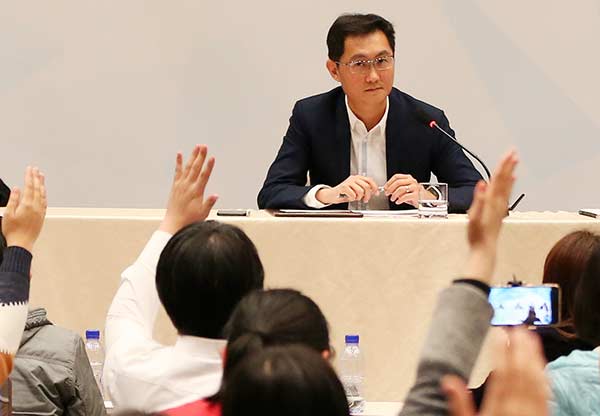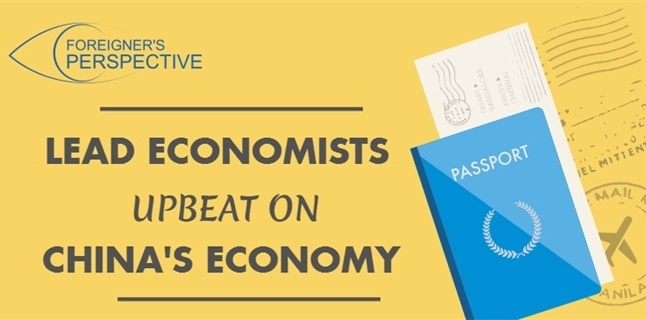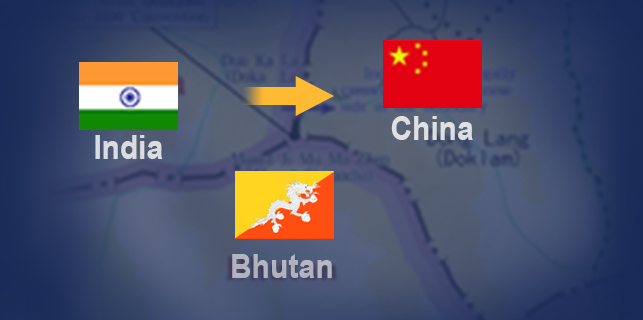Jack Ma dethroned by Ma Huateng as richest person in Asia
 |
|
Jack Ma, founder and executive chairman of Alibaba Group gives lectures to young entrepreneurs in Nailab. [Photo by Liu Hongjie/chinadaily.com.cn] |
Jack Ma, Alibaba's founder and executive chairman, was briefly dethroned on Monday as the richest person in Asia by his archrival Ma Huateng, chairman and CEO of China's internet giant Tencent.
This may give you a sense of deja vu, as less than two weeks ago Bill Gates briefly lost his title as the world's richest person to Amazon CEO Jeff Bezos and then reclaimed the crown within a few hours time.
According to Forbes, Ma Huateng raked in nearly $1 billion of fortune helped by a 2.95-percent gain in Tencent's share price at the Hong Kong Stock Exchange on Monday, bringing his worth to an estimated $36.2 billion on the Forbes real-time billionaires ranking.
Taking a narrow lead over Jack Ma's $35.6 billion of wealth, that number allows Ma Huateng to become the wealthiest person in Asia for the first time, and also the richest in China for the first time.
 |
|
Ma Huateng, chairman of Tencent and deputy of the National People's Congress, answers reporters' questions ahead of the fifth plenary session of the 12th NPC in Beijing. FENG YONGBIN/CHINA DAILY |
However, like Bezos, Ma Huateng's top position lasted just a matter of hours.
By the close of trading on Monday in New York Stock Exchange where Alibaba shares are traded, Jack Ma's fortune rose to $36.4 billion thanks to a 3.6-percent gain in Alibaba stock price, which is 200 million more than Tencent's Ma Huateng.
The rise of Tencent and Alibaba underscores the explosive growth in online services and content in China.
With around 731 million Internet users, China is the world's largest and fastest-growing e-commerce market. In 2016, online shopping in China saw a growth rate of 26.2 percent, generating 5.16 trillion yuan ($767 billion), according to a report by the National Bureau of Statistics.
- Jack Ma coaches African entrepreneurs
- Alibaba's Jack Ma calls for seizing the future to seek broader China-US cooperation
- Alibaba, Tencent want pieces of telecom giant
- Tencent's WeChat Pay seeks license for local payment services in Malaysia
- Tencent's publishing arm reads good potential in HK listing









